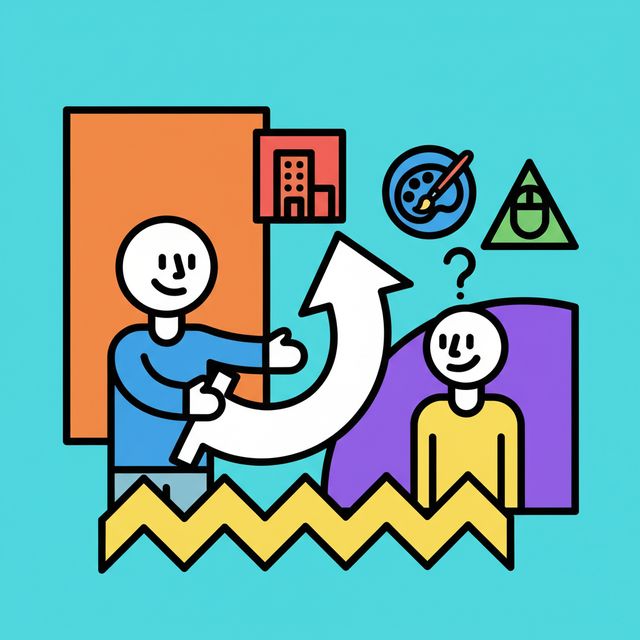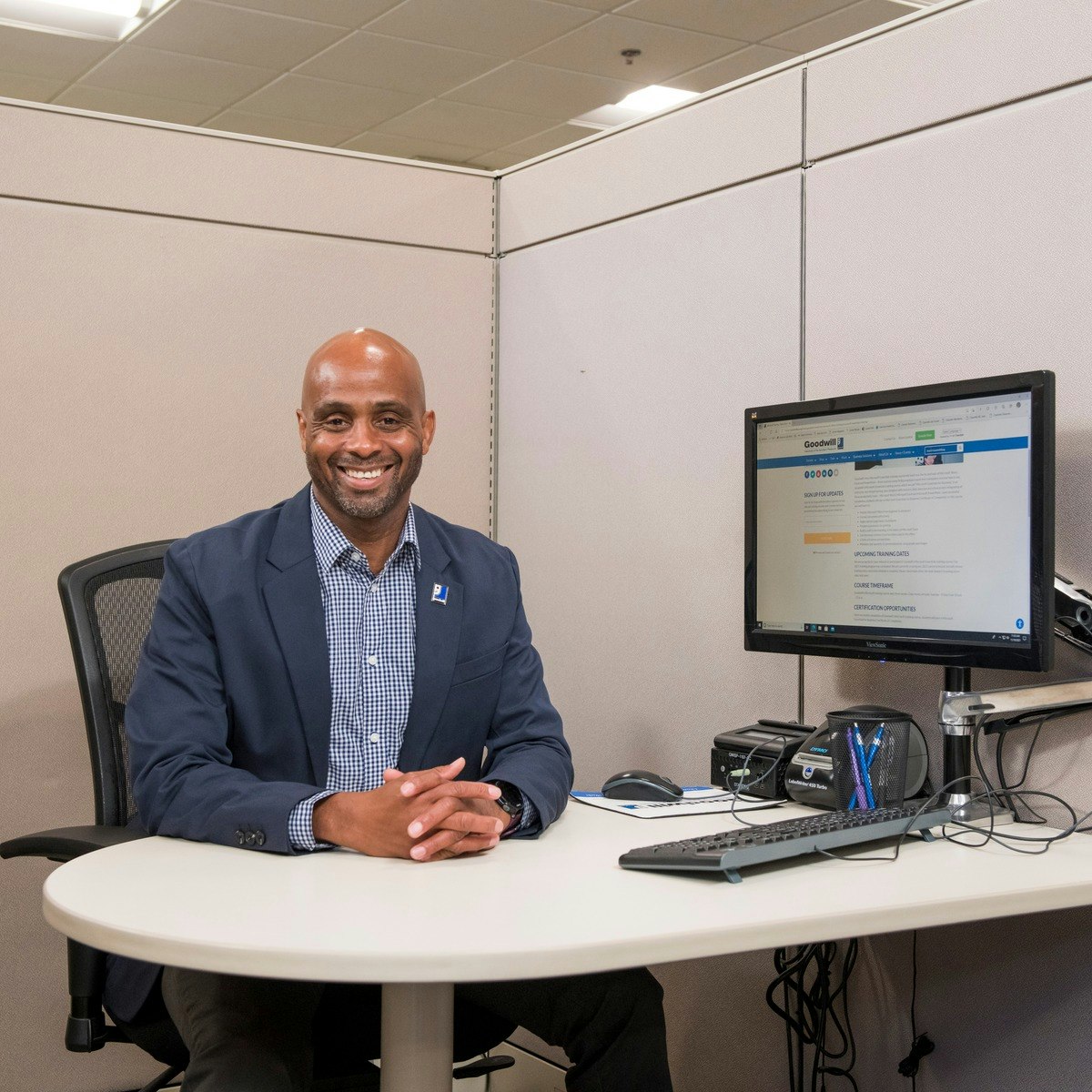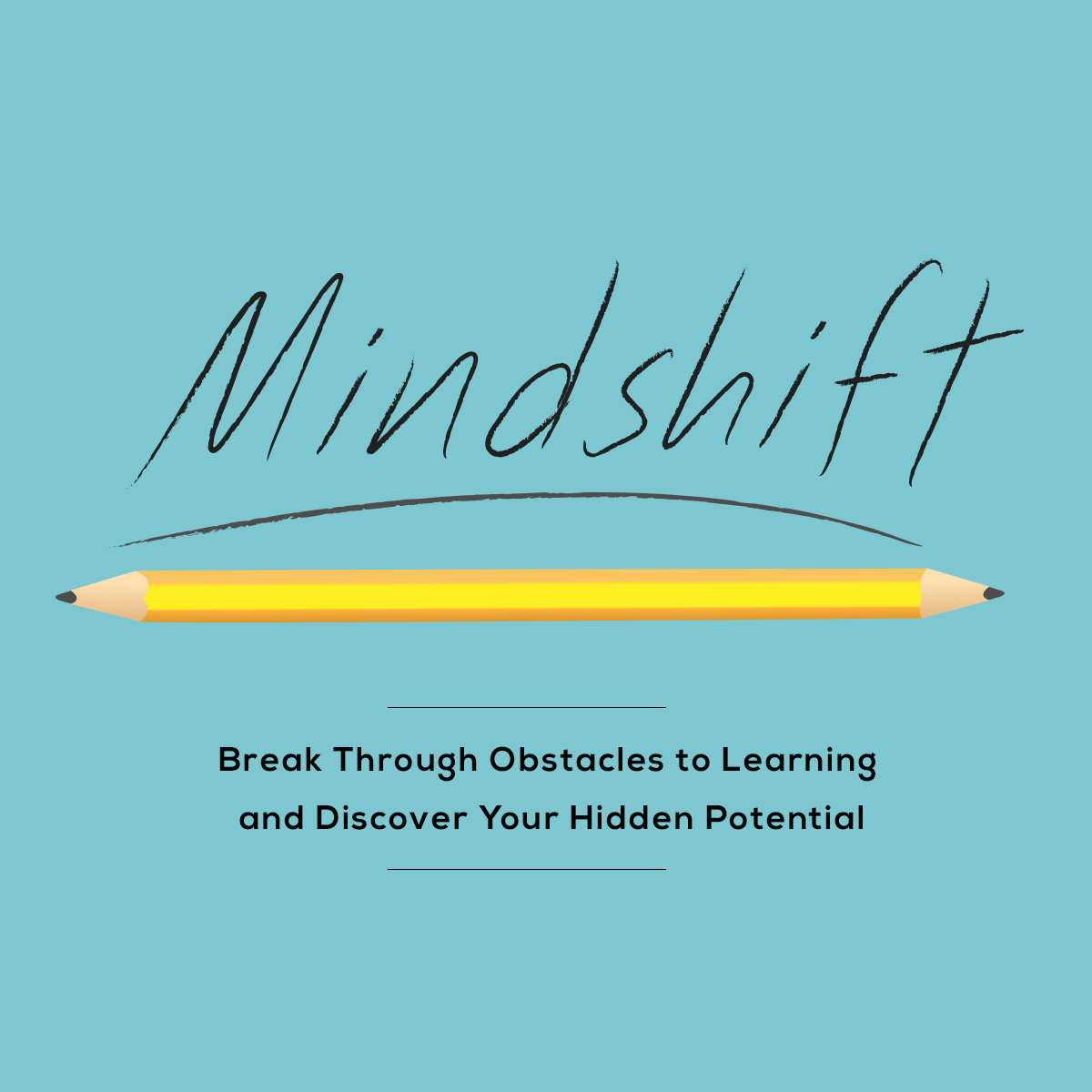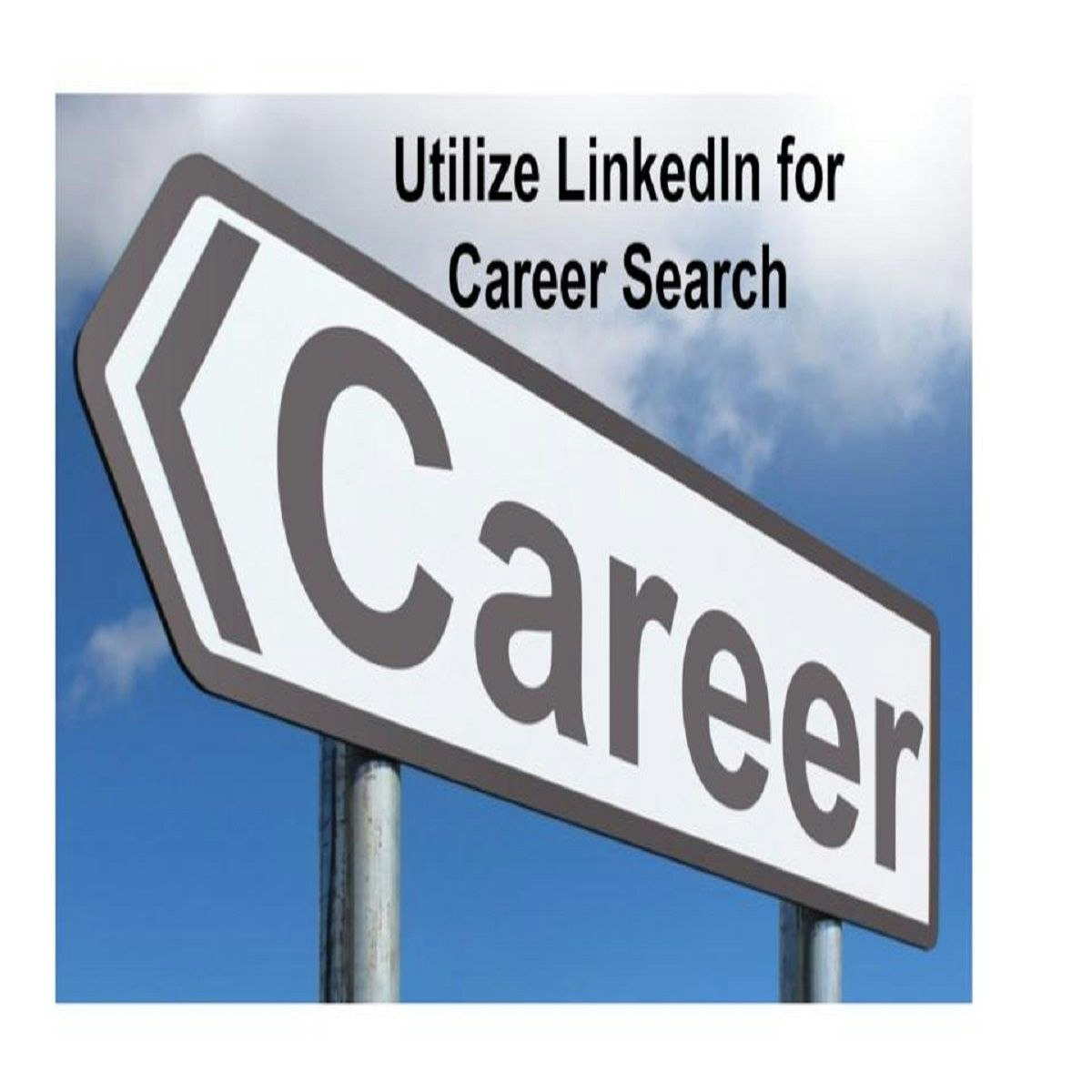Career Counselor
Career Counselor
Career counselors are professionals dedicated to helping individuals navigate the complex world of career exploration, development, and transition. They work with people at various stages of life, from students choosing a major to experienced professionals seeking a change, guiding them toward fulfilling and suitable career paths through assessment, advice, and support.
Working as a career counselor can be deeply rewarding, offering the chance to make a tangible difference in people's lives by empowering them to find meaningful work. It involves engaging with diverse individuals, constantly learning about the evolving job market, and utilizing psychological principles to foster self-awareness and decision-making skills in clients.
Introduction to Career Counseling
What is Career Counseling?
Career counseling is a specialized field that blends elements of counseling psychology, human resources, and education. Its primary aim is to assist individuals in understanding their interests, skills, values, and personality traits, and relating this self-knowledge to the world of work. Counselors help clients explore potential career options, set achievable goals, and develop strategies to overcome obstacles in their career journey.
The scope of career counseling extends beyond simply finding a job. It encompasses comprehensive career planning, addressing work-related stress, enhancing job satisfaction, managing career transitions (like promotions, layoffs, or retirement), and fostering lifelong career development skills. Counselors utilize various tools, including aptitude tests, interest inventories, and personality assessments, to facilitate client insight.
Ultimately, career counseling empowers individuals to make informed and meaningful decisions about their professional lives. It's a collaborative process where the counselor acts as a facilitator, guiding clients to discover their own answers and build confidence in their ability to manage their careers effectively.
Understanding the foundations of this field can be helpful. These resources explore career decisions and the principles behind navigating professional paths.
A Brief History of Career Guidance
The roots of career counseling can be traced back to the early 20th century, emerging alongside industrialization and societal shifts that created a need for vocational guidance. Early efforts focused on matching individuals' traits with specific job requirements, often aiming to improve industrial efficiency and address social issues like youth unemployment.
Figures like Frank Parsons, often considered the "father of vocational guidance," pioneered systematic approaches. His trait-and-factor model emphasized understanding oneself, knowing about different occupations, and making a logical connection between the two. This foundational concept influenced the field significantly, leading to the development of assessment tools and structured guidance programs in schools and community settings.
Over time, the field evolved, incorporating psychological theories about personality, development, and decision-making. The focus shifted from simple matching to a more holistic understanding of career development as a lifelong process, influenced by personal growth, life circumstances, and changing economic landscapes. Today's career counseling integrates diverse theories and approaches to meet the complex needs of individuals in a dynamic global workforce.
Why Career Counseling Matters Today
In the modern workforce, characterized by rapid technological change, globalization, and shifting job roles, career counseling is more critical than ever. Individuals face numerous choices and uncertainties throughout their careers, making informed decision-making essential for professional fulfillment and economic stability. Counselors provide the necessary support and structure to navigate this complexity.
Educational institutions rely on career counselors to help students connect their academic pursuits with future employment opportunities. Counselors assist students in choosing majors, exploring internships, developing job search skills, and preparing for the transition from education to work. This guidance helps align educational outcomes with workforce needs.
Furthermore, career counselors play a vital role in workforce development initiatives. They support adults facing job displacement, seeking career advancement, or re-entering the workforce. By providing resources, coaching, and market insights, counselors contribute to individual resilience and adaptability, fostering a more skilled and dynamic labor force responsive to economic demands.
Roles and Responsibilities of a Career Counselor
A Day in the Life
The daily activities of a career counselor are diverse and client-focused. A significant portion of their time involves one-on-one sessions with clients, conducting assessments to identify interests, skills, and values, and interpreting the results to facilitate self-understanding. Counselors help clients explore career options that align with their profiles.
Practical job-seeking support is another core function. This includes reviewing and providing feedback on resumes and cover letters, conducting mock interviews to build confidence and refine technique, and teaching effective job search strategies, including networking and utilizing online platforms like LinkedIn.
Counselors may also lead workshops or group sessions on topics like career exploration, resume writing, or interview skills. Administrative tasks, such as record-keeping, researching labor market trends, and developing resources, are also part of the routine. The specific balance of tasks can vary depending on the work setting, such as a university, private practice, or government agency.
Developing practical skills like resume creation and interview techniques is crucial. These online courses offer hands-on guidance for these essential tasks.
Working with Diverse Clients
Career counselors interact with a wide range of clients, each bringing unique backgrounds, experiences, and needs. They might work with high school students uncertain about their future paths, university students choosing majors or seeking internships, or recent graduates entering the job market for the first time.
Mid-career professionals form another significant client group. These individuals may be seeking advancement, considering a career change due to dissatisfaction or industry shifts, or dealing with job loss. Counselors help them reassess their goals, identify transferable skills, and navigate the challenges of career transitions later in life.
Counselors also serve specific populations, such as veterans transitioning to civilian life, individuals with disabilities seeking suitable employment, immigrants adapting to a new job market, or executives refining their leadership paths. Effective practice requires tailoring approaches to meet the distinct circumstances and cultural contexts of each client.
Supporting clients effectively involves understanding their unique situations and providing tailored guidance. These courses focus on client support and navigating career paths.
Collaboration and Partnerships
Career counselors rarely work in isolation. Collaboration with various stakeholders is essential for providing comprehensive support to clients. Within educational settings, counselors often partner with faculty, academic advisors, and administrators to integrate career development into the curriculum and student life.
Building relationships with employers is crucial for understanding industry needs and creating opportunities for clients. Counselors may organize career fairs, facilitate employer information sessions, develop internship programs, and cultivate networks to connect clients with job openings and industry contacts.
Counselors may also collaborate with other professionals, such as mental health counselors, social workers, or vocational rehabilitation specialists, particularly when clients face complex challenges that intersect with career issues. Working with community organizations and government agencies involved in workforce development is also common, creating a broader support system for clients navigating the labor market.
Key Skills for Effective Career Counselors
The Power of Listening and Empathy
Active listening and empathy are foundational skills for any counselor, including career counselors. Active listening involves fully concentrating on what the client is saying, understanding their message, responding thoughtfully, and remembering the information. It goes beyond simply hearing words; it requires grasping the underlying emotions, concerns, and perspectives.
Empathy is the ability to understand and share the feelings of another person from their frame of reference. For a career counselor, this means genuinely connecting with the client's experiences, anxieties, hopes, and frustrations regarding their career journey. It helps build trust and rapport, creating a safe space for clients to explore vulnerable topics.
These skills enable counselors to ask insightful questions, reflect client feelings accurately, and guide the counseling process effectively. Without strong listening and empathetic abilities, a counselor cannot fully understand the client's unique situation or provide truly personalized and meaningful support.
Emotional intelligence and strong communication are vital for connecting with clients. These courses delve into developing emotional intelligence and related communication skills.
Understanding the World of Work
A deep understanding of the labor market is essential for effective career counseling. Counselors need to stay informed about current employment trends, in-demand occupations, industry growth areas, required skills for various jobs, and typical salary ranges. This knowledge allows them to provide realistic and relevant guidance to clients.
Analyzing labor market information involves utilizing resources like government reports (such as those from the Bureau of Labor Statistics Occupational Outlook Handbook), industry publications, professional association data, and networking with employers. Counselors must be adept at interpreting this data and translating it into actionable insights for clients.
This understanding helps clients explore viable career paths, identify skill gaps, and develop targeted job search strategies. It also enables counselors to help clients anticipate future changes in the workforce and plan for long-term career adaptability and resilience in an ever-evolving economic landscape.
Navigating Diverse Backgrounds
Cultural competency is the ability to interact effectively with people from diverse cultural backgrounds. In career counseling, this involves recognizing and respecting the influence of culture, ethnicity, gender, socioeconomic status, sexual orientation, disability, and other identity factors on an individual's career development and choices.
Counselors must be aware of their own biases and assumptions to avoid imposing their own cultural values on clients. They need to understand how different cultural norms might shape career aspirations, decision-making styles, family expectations, and perceptions of work-life balance. Providing culturally sensitive counseling means adapting assessment tools and intervention strategies appropriately.
Developing cultural competency is an ongoing process that requires continuous learning, self-reflection, and humility. It ensures that counselors provide equitable and effective support to all clients, acknowledging the unique challenges and opportunities presented by their diverse backgrounds and experiences in the context of the broader society and workforce.
Understanding diversity and inclusion is critical in supporting clients from all backgrounds. This course addresses strategies for diversity and inclusion.
Formal Education Pathways
Undergraduate Foundations
While specific undergraduate degree requirements can vary, a bachelor's degree is generally the minimum educational entry point for roles related to career services, although becoming a licensed counselor typically requires graduate study. Degrees in fields like Psychology provide a strong foundation in human behavior, development, and assessment methods, which are central to counseling.
Degrees in Education or Human Resources are also common pathways. Education programs offer insights into learning theories, guidance principles, and working within educational systems. Human Resources programs cover topics like recruitment, talent management, and organizational behavior, providing valuable context for the employment landscape.
Other relevant undergraduate fields might include Sociology, Social Work, or Communications. Regardless of the major, coursework emphasizing counseling theories, human development, communication skills, research methods, and statistics provides a solid base for pursuing graduate studies or entry-level roles in career advising or related support functions.
Graduate Studies: The Standard Path
For those seeking to become professional Career Counselors, particularly licensed practitioners, a master's degree is typically required. Programs specifically in Career Counseling provide specialized training in career development theories, assessment techniques, counseling strategies, ethical considerations, and labor market analysis.
Alternatively, master's degrees in Counseling Psychology, Clinical Mental Health Counseling, or School Counseling often include coursework and practicum experiences relevant to career counseling. These programs provide broader counseling skills applicable to various settings, with options to specialize or focus elective work on career-related issues.
Graduate programs emphasize practical experience through supervised internships and practica, where students apply theoretical knowledge in real-world settings. Choosing an accredited program (e.g., by CACREP - Council for Accreditation of Counseling and Related Educational Programs in the US) is often essential for meeting licensure requirements.
Licensing and Certification
Requirements for practicing as a Career Counselor vary significantly by region and country. In many parts of the United States, using the title "Counselor" and practicing independently requires state licensure, typically as a Licensed Professional Counselor (LPC) or a similar designation. Licensure usually mandates a specific master's degree, supervised post-graduate experience, and passing a licensing examination.
Beyond state licensure, voluntary professional certifications can enhance credibility and demonstrate specialized expertise. Organizations like the National Board for Certified Counselors (NBCC) offer certifications such as the National Certified Counselor (NCC) and specialty credentials like the Certified Clinical Mental Health Counselor (CCMHC) or National Certified School Counselor (NCSC). The National Career Development Association (NCDA), a division of the American Counseling Association, offers several career-specific credentials like the Certified Career Counselor (CCC) and Master Career Counselor (MCC). You can explore their requirements further on the NCDA website.
It is crucial for aspiring counselors to research the specific licensing and certification requirements in the jurisdiction where they intend to practice. These regulations ensure practitioners meet minimum standards of education, experience, and ethical conduct, protecting the public and upholding professional standards.
Online Learning and Skill Development
Building Foundational Knowledge Online
Online courses offer accessible and flexible ways to build foundational knowledge relevant to career counseling. Platforms like OpenCourser aggregate offerings from universities and organizations worldwide, covering topics like psychology, human development, communication skills, and basic counseling principles. These can serve as an excellent starting point for exploration or supplement formal education.
For individuals exploring a career change into counseling, online courses provide a low-commitment way to test the waters and understand core concepts before investing in a full degree program. They can help clarify whether the field aligns with personal interests and aptitudes. Look for introductory courses in psychology, counseling theories, or human services.
While online courses alone typically cannot replace a formal degree for licensure, they are invaluable for building a strong theoretical base. Learners can explore different facets of counseling and career development at their own pace, identifying areas of particular interest for further study.
These online courses offer foundational insights into career development, goal setting, and understanding potential.
Acquiring Practical Skills Digitally
Beyond foundational theory, online learning excels at teaching specific, practical skills crucial for career counselors. Numerous courses focus on resume and cover letter writing, providing templates, best practices, and techniques for helping clients create compelling application materials. Many adopt a project-based approach for hands-on learning.
Interview coaching skills can also be honed online. Courses often cover common interview questions, effective answering strategies like the STAR method, body language tips, and techniques for virtual interviews. Some platforms even offer opportunities for peer review or simulated interview practice.
Furthermore, online courses can teach proficiency in specific assessment tools or software platforms used in career counseling, such as interest inventories or client management systems. Learning digital tools like Canva for presentation design or Zoho Forms for surveys can also be beneficial for creating client resources or gathering feedback.
These courses focus on developing the practical skills needed for job searching and interviewing support.
These books offer in-depth guidance on job searching and resume writing.
Supplementing Traditional Education
For students enrolled in traditional degree programs (undergraduate or graduate), online courses serve as powerful supplements. They can deepen understanding of specific topics covered briefly in coursework or introduce emerging areas not yet integrated into the formal curriculum, such as the latest digital tools or niche counseling techniques.
Online learning allows students to tailor their education beyond the standard syllabus. If a student develops a strong interest in a particular area, like vocational rehabilitation or executive coaching, they can pursue specialized online courses to gain extra knowledge and demonstrate initiative to future employers or graduate programs.
Moreover, digital credentials earned from reputable online courses can enhance a student's resume and LinkedIn profile. They showcase specific skills and a commitment to continuous learning, potentially providing an edge in competitive internship or job applications within the counseling field.
Continuous Professional Development
Career counseling is a dynamic field, requiring practitioners to engage in lifelong learning to stay current. Online courses provide an efficient and accessible means for continuous professional development (CPD). Counselors can easily find courses on updated counseling theories, new assessment instruments, emerging labor market trends, or ethical guidelines.
Upskilling in areas like virtual counseling platforms, data analysis for tracking client outcomes, or digital marketing for private practice development can be achieved through targeted online learning. Many professional organizations and licensing boards accept relevant online courses for fulfilling CPD requirements.
For seasoned professionals, online courses offer opportunities to explore specializations or refresh core skills. Embracing self-directed online learning demonstrates adaptability and commitment to providing the highest quality service to clients throughout one's career.
These courses and books support ongoing professional growth and self-management.
Leveraging OpenCourser for Your Learning Journey
OpenCourser is a valuable resource for anyone pursuing a career in counseling. Its extensive catalog allows you to search and compare thousands of online courses from various providers, covering everything from foundational psychology to specialized counseling techniques and practical skills like resume writing.
Utilize features like saving courses to a list using the "Save to list" button (manage your list here) to curate your own learning path. Explore course details, syllabi (when available), and summarized reviews to make informed choices. The "Career Center" section on course pages can also help you see related career paths.
For those seeking structured guidance, the OpenCourser Learner's Guide offers articles on effective online learning strategies, earning certificates, and building a self-directed curriculum. Stay updated on new courses and learning tips through OpenCourser Notes, the official blog. Exploring categories like Psychology or Career Development can also uncover relevant resources.
Career Progression for Career Counselors
Starting Your Journey
Entry-level positions in the career development field often involve providing direct support under supervision. Roles might include Career Advisor, Job Coach, or Employment Specialist within university career centers, non-profit organizations, or government employment agencies. These roles typically focus on assisting clients with job search basics, resume critiques, and resource navigation.
Individuals with a bachelor's degree might find opportunities in these capacities, particularly if they have relevant internship experience. These initial roles provide valuable exposure to client interaction, common career challenges, and the practical application of career development principles. It's a crucial stage for building foundational skills and understanding the day-to-day realities of the profession.
Gaining experience and potentially pursuing further education or certifications are key steps for advancing beyond these entry-level positions. Mentorship from experienced counselors during this phase can be highly beneficial for professional growth.
These resources help in planning and managing the early stages of a career.
Advancing in the Field
With experience and typically a master's degree and/or licensure, career counselors can take on more complex responsibilities. Senior Counselor roles often involve handling more challenging client cases, utilizing advanced assessment techniques, and providing deeper therapeutic support related to career issues.
Progression often involves increased autonomy and potentially supervising junior staff or interns. Senior counselors might develop specialized expertise in areas like working with specific client populations (e.g., executives, individuals with disabilities) or addressing particular issues (e.g., career indecision, workplace adjustment).
Advancement timelines vary, but reaching a senior level often requires several years of post-graduate experience. Continuous professional development, active participation in professional organizations, and potentially pursuing advanced certifications contribute significantly to career growth and recognition within the field.
These books offer insights into designing one's life and career path.
Leading the Way
Experienced career counselors may transition into leadership or administrative positions. Roles such as Director of Career Services at a university, Program Manager at a workforce development agency, or supervisor in a counseling center involve overseeing programs, managing budgets, leading teams of counselors, and strategic planning.
These leadership roles require strong organizational, management, and communication skills, in addition to clinical expertise. Leaders often engage in policy development, program evaluation, community outreach, and building partnerships with employers and other stakeholders. Some may move into higher education administration or consulting roles.
Another path involves establishing a private practice, offering career counseling services independently or as part of a group practice. This requires entrepreneurial skills, including marketing, financial management, and business development, alongside clinical competence.
These resources touch upon leadership and management principles relevant for advancement.
Finding Your Niche
The field of career counseling offers numerous opportunities for specialization. Some counselors focus on specific populations, such as college students, veterans, executives, or individuals with disabilities requiring vocational rehabilitation support. Each group has unique needs and challenges requiring tailored knowledge and approaches.
Other specializations focus on specific types of services. Executive coaching, for instance, involves working with high-level professionals on leadership development and career strategy. Some counselors specialize in administering and interpreting specific types of psychological or career assessments.
Developing a niche can enhance professional satisfaction and marketability. It often involves additional training, certifications, and targeted experience. Exploring different areas during initial career stages can help identify passions and pathways for specialization later on.
Ethical Challenges in Career Counseling
Maintaining Confidentiality
Confidentiality is a cornerstone of the counseling relationship, essential for building trust. Career counselors have an ethical obligation to protect the privacy of client information shared during sessions. This includes assessment results, personal reflections, job search activities, and any other sensitive details disclosed.
However, confidentiality is not absolute. Counselors must inform clients about the limits of confidentiality, such as situations involving potential harm to self or others, child or elder abuse, or legal mandates like court orders. Navigating these exceptions requires careful judgment and adherence to legal and ethical guidelines.
Challenges can arise when working within organizations (like schools or companies) where multiple stakeholders may have an interest in client information. Counselors must clearly define boundaries regarding information sharing and obtain informed consent from clients before disclosing any details to third parties, such as employers or parents.
Addressing Bias
Personal biases, whether conscious or unconscious, can inadvertently influence the counseling process. Counselors may hold stereotypes or assumptions related to gender, race, age, socioeconomic status, or perceived capabilities, which can affect the career options explored or the advice given. Recognizing and actively mitigating these biases is an ethical imperative.
Strategies for bias mitigation include ongoing self-reflection, seeking supervision or consultation, engaging in diversity and cultural competency training, and consciously challenging assumptions. Using objective data and assessment tools appropriately can help ground recommendations, but even these tools can have inherent biases that counselors must consider.
Ethical practice demands striving for objectivity and fairness, ensuring that all clients receive equitable guidance based on their individual strengths, interests, and values, rather than societal stereotypes or the counselor's personal preferences. This commitment supports client autonomy and promotes social justice within the career development field.
Managing Client Expectations
Clients often come to career counseling with high hopes, sometimes expecting the counselor to provide definitive answers, guarantee job placement, or magically solve complex career dilemmas. Managing these expectations realistically and ethically is crucial for a productive counseling relationship.
Counselors must clearly communicate the nature of the counseling process – that it is a collaborative journey of exploration and decision-making, not a quick fix. They need to be transparent about what they can and cannot do, avoiding promises of specific outcomes like securing a particular job or salary.
When clients hold unrealistic expectations (e.g., pursuing careers for which they lack necessary qualifications or demanding immediate results), counselors must address these gently but directly. This involves helping clients align their aspirations with reality, explore alternative paths if necessary, and understand the time and effort required for meaningful career development, while still providing support and encouragement.
Technological Impact on Career Counseling
Technology in Assessment and Guidance
Technology has significantly transformed career assessment and guidance. AI-driven platforms can now analyze vast amounts of data to suggest career paths based on user inputs about skills, interests, and experience. Online assessment tools offer convenient ways for clients to complete interest inventories, personality tests, and skills evaluations remotely.
These tools can provide quick insights and broaden the range of options considered. However, counselors play a critical role in helping clients interpret results within their personal context, ensuring that technology serves as an aid, not a replacement, for human judgment and self-reflection. Ethical use requires understanding the limitations and potential biases of algorithms.
Furthermore, technology provides access to extensive online databases of occupational information, labor market trends, and educational programs. Counselors leverage these resources to help clients conduct thorough research and make informed decisions, integrating digital tools seamlessly into the counseling process.
The Rise of Virtual Counseling
The adoption of virtual platforms for counseling sessions has accelerated, expanding access to career services. Tele-counseling via video conferencing allows counselors to connect with clients regardless of geographical location, offering flexibility and convenience, particularly for those with mobility issues or busy schedules.
While virtual counseling enhances accessibility, it also presents unique challenges. Building rapport and interpreting non-verbal cues can be more difficult online. Counselors need specific training in tele-counseling best practices to ensure effective communication, maintain confidentiality, and manage technology-related disruptions.
Hybrid models, combining in-person and virtual sessions, are also becoming common. The key is adapting counseling techniques to the chosen medium while upholding ethical standards and ensuring the quality of the therapeutic relationship remains paramount.
These courses offer insights into managing remote work and related technologies, relevant for virtual counseling.
Navigating Data Privacy
The increasing use of digital tools in career counseling raises significant data privacy and security concerns. Counselors collect and store sensitive client information, including personal details, assessment results, and session notes. Protecting this data from breaches and unauthorized access is an ethical and legal obligation.
Using secure platforms that comply with data protection regulations (like GDPR or HIPAA, depending on the context) is essential. Counselors must obtain informed consent regarding data collection, storage, and usage, clearly explaining privacy policies to clients. Transparency builds trust and ensures clients understand how their information is handled.
Navigating the complexities of data privacy requires ongoing vigilance and adherence to best practices. Counselors must stay informed about evolving regulations and technologies to safeguard client confidentiality in the digital age, balancing the benefits of technology with the fundamental right to privacy.
Global Perspectives in Career Counseling
Career Development Across Cultures
Career development theories and counseling practices often originated in Western contexts and may not directly apply universally. Cultural values significantly shape perceptions of work, career success, decision-making processes, and the role of family in career choices. Effective global practice requires sensitivity to these variations.
In collectivist cultures, for example, family needs and expectations might heavily influence career decisions, contrasting with the emphasis on individual autonomy often found in individualistic cultures. Concepts of career paths, work-life balance, and definitions of success can also differ substantially across cultural backgrounds.
Culturally competent counselors working internationally or with diverse domestic populations must adapt their approaches. This involves learning about different cultural norms, utilizing culturally appropriate assessment tools, and respecting diverse worldviews regarding work and life purpose. It requires moving beyond ethnocentric perspectives towards a more inclusive understanding of career development.
International Demand and Trends
The demand for career counseling services varies across economic regions, influenced by factors like economic development, education system structure, youth unemployment rates, and cultural attitudes towards guidance. In many developed economies, career counseling is well-established within educational institutions and workforce development systems.
In emerging economies, the field may be less developed but rapidly growing as globalization increases awareness of career options and the need for guidance. International organizations and educational partnerships sometimes play a role in promoting career development services in regions where they are less common.
Global trends like automation, the gig economy, and increased mobility also shape demand. Counselors worldwide need to help clients navigate these changes, emphasizing transferable skills, lifelong learning, and adaptability in a globally interconnected labor market.
Working Across Borders
For counselors interested in working internationally or with clients seeking opportunities abroad, understanding cross-border issues is important. One major challenge is the variability in professional recognition and credentialing requirements. Licenses and certifications obtained in one country may not be automatically recognized in another.
Counselors working across borders need to be knowledgeable about international labor markets, visa requirements, and cultural adaptation challenges faced by expatriates or immigrants. Providing effective support requires understanding the nuances of different educational systems and professional landscapes.
International professional organizations and collaborations are working towards greater harmonization of standards and facilitating cross-border practice. However, navigating the complexities of international career counseling currently requires significant research, adaptability, and often, collaboration with local experts.
Frequently Asked Questions
Frequently Asked Questions
Q: What is the difference between career counseling and career coaching?
A: While there's overlap and the terms are sometimes used interchangeably, a key distinction often lies in scope and regulation. Career Counseling typically requires a graduate degree and often state licensure, focusing on deeper exploration of career issues, addressing underlying psychological factors (like anxiety or indecision), utilizing formal assessments, and adhering to strict ethical codes. Career Coaching may not require specific credentials (though certifications exist), often focuses more on actionable strategies, goal setting, performance improvement, and accountability, sometimes drawing from the coach's own industry experience. Counselors often address the "why" behind career choices, while coaches may focus more on the "how" of achieving specific goals.
Q: Can I practice as a career counselor without a graduate degree?
A: Practicing as a licensed "Career Counselor" typically requires a master's degree in counseling or a closely related field, along with supervised experience and passing exams, as dictated by state or regional regulations. However, individuals with a bachelor's degree can often work in related roles like Career Advisor, Employment Specialist, or Job Coach, usually under supervision or within specific organizational structures (e.g., university career centers, non-profits). These roles focus on providing guidance, resources, and support but may not involve the in-depth assessment or therapeutic interventions characteristic of licensed counseling.
Q: What are the typical salary ranges for career counselors?
A: Salary ranges vary significantly based on location, work setting (education, government, private practice), experience level, education, and credentials. According to the U.S. Bureau of Labor Statistics, the median annual wage for school and career counselors and advisors was $61,710 in May 2023. Entry-level positions will typically be lower, while experienced counselors in private practice or specialized roles (like executive coaching) may earn significantly more. It's essential to research salary data specific to your region and desired work setting.
Q: How recession-proof is this career?
A: The demand for career counseling can be somewhat counter-cyclical. During economic downturns and periods of high unemployment, more people seek assistance with job searching, career changes, and managing job loss, potentially increasing demand for services. Conversely, budget cuts in educational institutions or government agencies during recessions could impact funding for counselor positions. Overall, the need for guidance in navigating an increasingly complex job market provides a degree of stability, but like many professions, it's not entirely immune to economic fluctuations.
Q: What essential technology skills are needed?
A: Proficiency with basic office software (word processing, spreadsheets, presentations) is fundamental. Familiarity with video conferencing platforms for virtual counseling is increasingly vital. Counselors should be comfortable using online assessment tools, career information databases, and client management systems. Skills in utilizing professional networking platforms like LinkedIn, both for their own networking and to teach clients, are also important. Basic understanding of data privacy principles is essential when using digital tools.
Q: What are the pathways from Human Resources to career counseling?
A: Professionals in Human Resources possess many transferable skills valuable in career counseling, such as knowledge of recruitment processes, understanding of job markets, interviewing experience, and familiarity with workplace dynamics. Transitioning often involves supplementing HR experience with formal counseling education (typically a master's degree) to gain theoretical knowledge, assessment skills, and counseling techniques. Obtaining necessary licensure or certification is usually required. Some HR professionals might transition into career coaching roles first, which may have less stringent educational requirements than licensed counseling.
Exploring Related Fields
Similar Counseling Roles
Several counseling professions share similarities with career counseling, often overlapping in skills and sometimes in practice. School Counselors work within K-12 settings, addressing academic, personal/social, and career development needs of students. Guidance Counselors, a term often used interchangeably with School Counselor, also focus on supporting students' overall well-being and future planning.
Social Workers help individuals, families, and groups cope with problems in their everyday lives, which can include employment-related challenges. While their scope is broader, addressing barriers to employment and connecting clients with resources are common aspects of their work, particularly in community or clinical settings.
Vocational Rehabilitation Counselors specialize in assisting individuals with physical, mental, developmental, or emotional disabilities to overcome barriers to employment and achieve career goals.
Adjacent Professional Areas
Professionals in Human Resources often deal with aspects related to career paths within organizations, such as recruitment, employee development, performance management, and succession planning. Their focus is typically organizational, but the skills overlap significantly with understanding career trajectories and labor markets.
Teachers and educators, particularly at the secondary and post-secondary levels, often provide informal career guidance and mentorship. They help students develop foundational skills and explore interests that can lead to specific career paths. Some teachers may even integrate career exploration activities into their curriculum.
Corporate trainers and learning & development specialists focus on upskilling employees within organizations, which directly impacts career progression and adaptation to changing job roles.
Key Concepts to Explore
Delving deeper into related topics can enrich one's understanding of the career counseling field. Exploring Career Development Theories provides a framework for understanding how individuals make career choices and progress through different life stages. Understanding Psychology, particularly developmental psychology and personality theories, offers insights into individual differences and motivations.
Staying abreast of Labor Market Analysis techniques and resources is crucial for providing relevant advice. Familiarity with Assessment Methods, including the ethical use and interpretation of various career inventories and tests, is a core competency. Finally, understanding principles of Coaching and Mentoring can enhance intervention strategies.
Embarking on a path toward becoming a career counselor is a significant undertaking, requiring education, skill development, and a genuine desire to help others navigate their professional lives. While the journey involves challenges, the opportunity to empower individuals to find fulfilling work can be immensely rewarding. Carefully consider the required skills, educational pathways, and daily realities of the profession to determine if it aligns with your own aspirations and strengths.





























